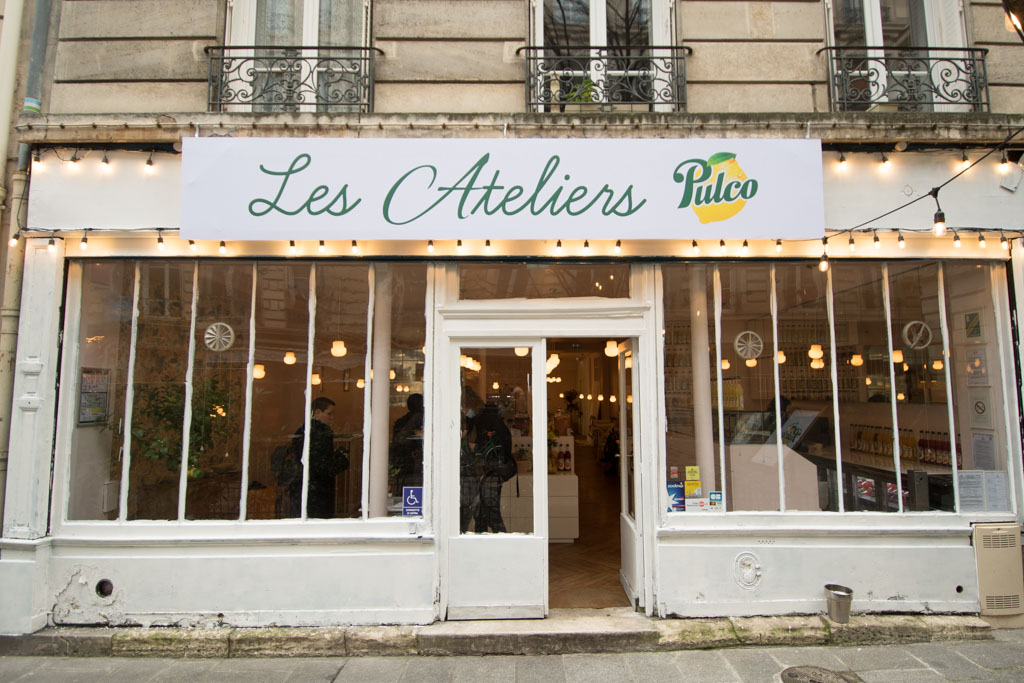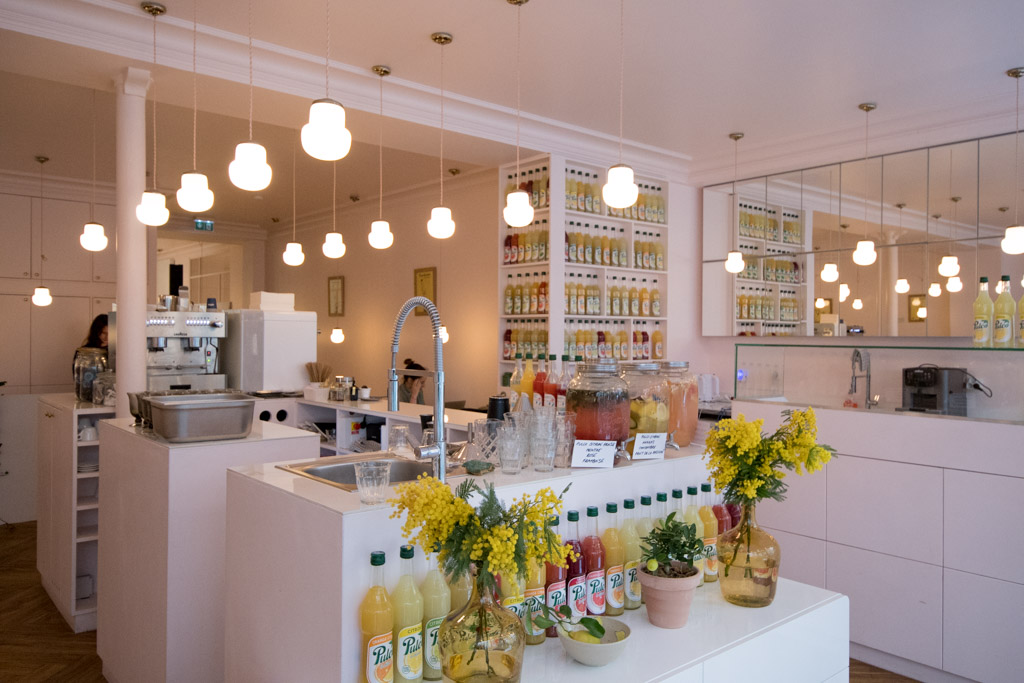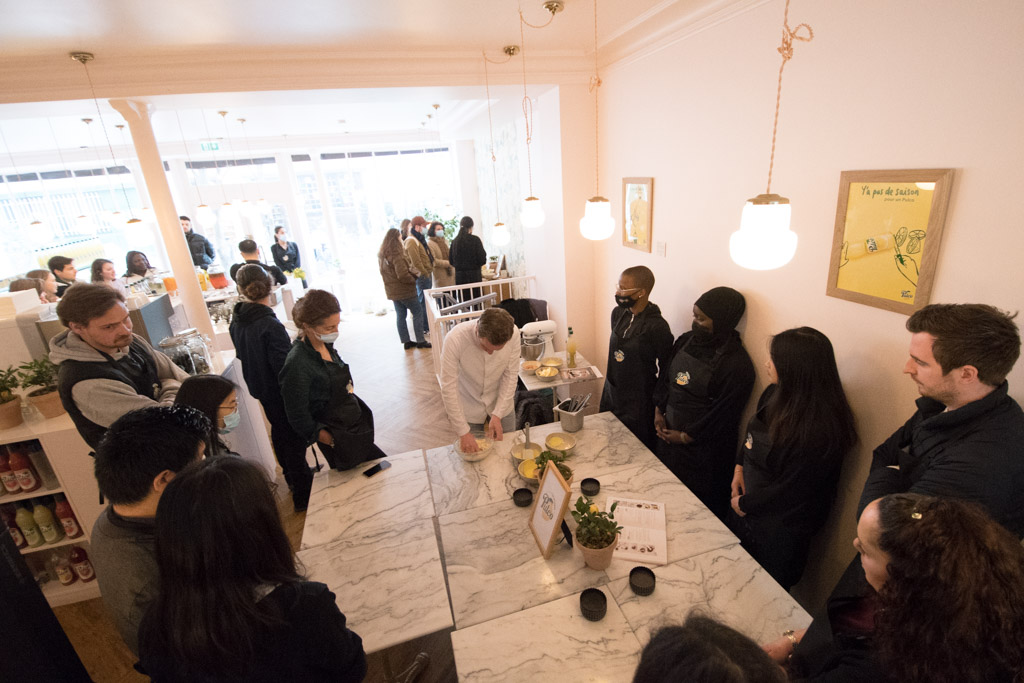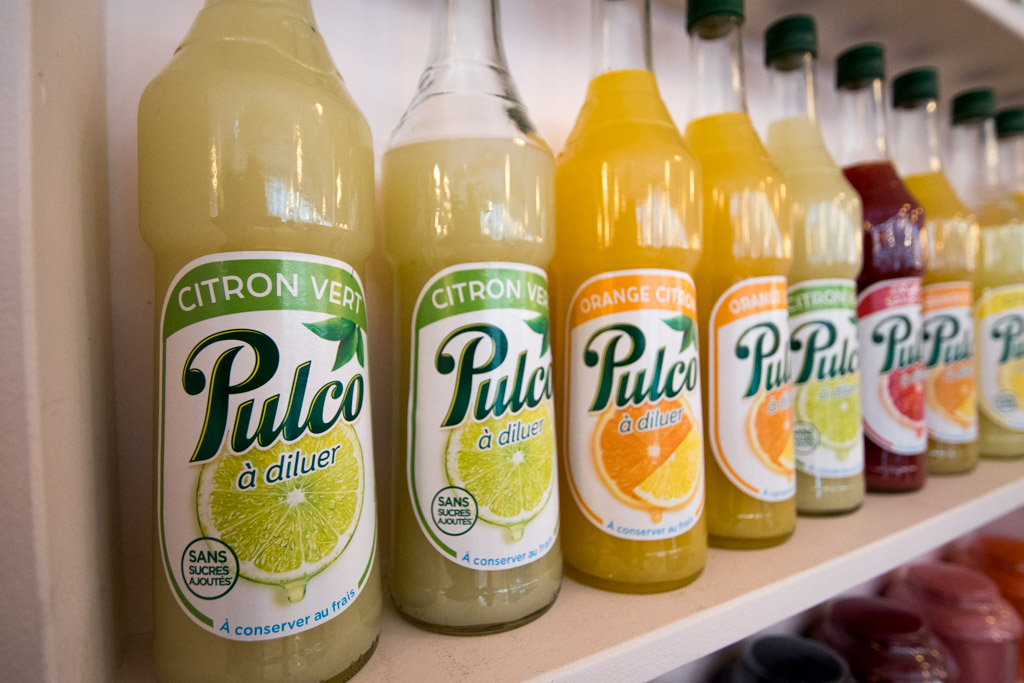The pop-up store launched by Pulco in Paris is an excellent example of how an ephemeral store is an exciting marketing strategy for a brand. Pulco faces particular challenges (awareness, image) to which this pop-up store aims to provide solutions. It becomes an essential element of the marketing mix because it allows reinforcing specific messages to consumers. In this article, we analyze 3 strategic and tactical objectives to which the pop-up store answers.
Description of the Pulco pop-up store
The Pulco pop-up store was very ephemeral since it stayed open only one day: March 12, 2022. In the Marais, a trendy neighborhood in Paris, it was installed, more precisely in the rue du Trésor.
During the day, various animations were planned around Pulco:
- mixology workshops led by Andrei Braun, Germain’s barman
- pastry classes led by Nicolas Paciello; a chef famous for his lemon meringue pie
- cooking workshops
- the creation of an evolving painted canvas by the artist Calyfornia
Visitors could also buy various items featuring lemons (the primary ingredient of Pulco) and buy Nicolas Paciello’s lemon meringue pie revisited with Pulco lemonade as the primary ingredient. The profits were donated to the association “On remplit le Frigo,” which helps needy students.
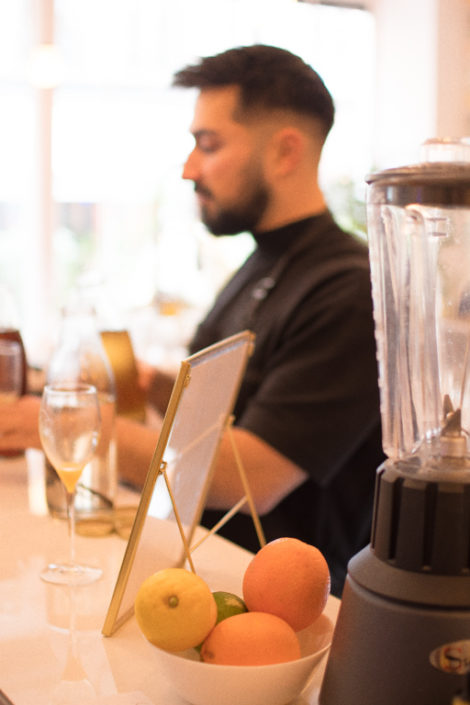
Why is the Pulco pop-up store a good marketing approach?
Pulco is a somewhat symbolic brand of the French landscape. Integrated with the Suntory galaxy (Orangina, Schweppes, Gini, Canada Dry, …), it has fallen into disuse and needs to be dusted off.
The pop-up store seems to me to meet 3 strategic and tactical objectives.
Objective n°1: to reconnect with the younger generation
However, the sympathy (and nostalgia) capital of Pulco, created in 1971, is substantial. It is an undeniable marketing asset. The pop-up store’s mission was to reconnect a young clientele to the universe of this brand that probably doesn’t remind them of anything.
An important lesson: a brand image is only valuable if it lasts through generations.
Objective n°2: diversify uses
Pulco’s other marketing objective was to increase the number of opportunities to consume the drink. The drink is mainly associated with summer and aperitifs. The goal of the workshops was to show that Pulco can be used in many ways and that it can also be used in sweet and savory recipes.
Objective n°3: to discover the range
The last objective was to show the extent of the range. If Pulco remains associated with lemon, Suntory has “somewhat” enlarged the range. There are now more than a dozen references, which have more or less moved away from the original lemonade. However, I doubt that consumers are aware of this.
What are the next steps in terms of marketing strategy?
A pop-up store that opens only 8 hours is very ephemeral. Such short openings are usually done by fashion brands that want to “create a buzz.” But what about Pulco?
I think that with this sales outlet, Pulco wanted to “feel” directly the public’s reaction to the contact of its brand. The link with consumers has been lost, the brand is not very humanized, and there is an urgent need to reconnect with the field.
If the marketing challenge is to dust off the brand, Pulco cannot stop at a modest pop-up store. We could imagine a more permanent location that would become a “temple” of the brand, like Casa Danone. There was indeed a Panzani restaurant, so why not a Pulco bar for sunny days (and others ?)?
Posted in Strategy.
